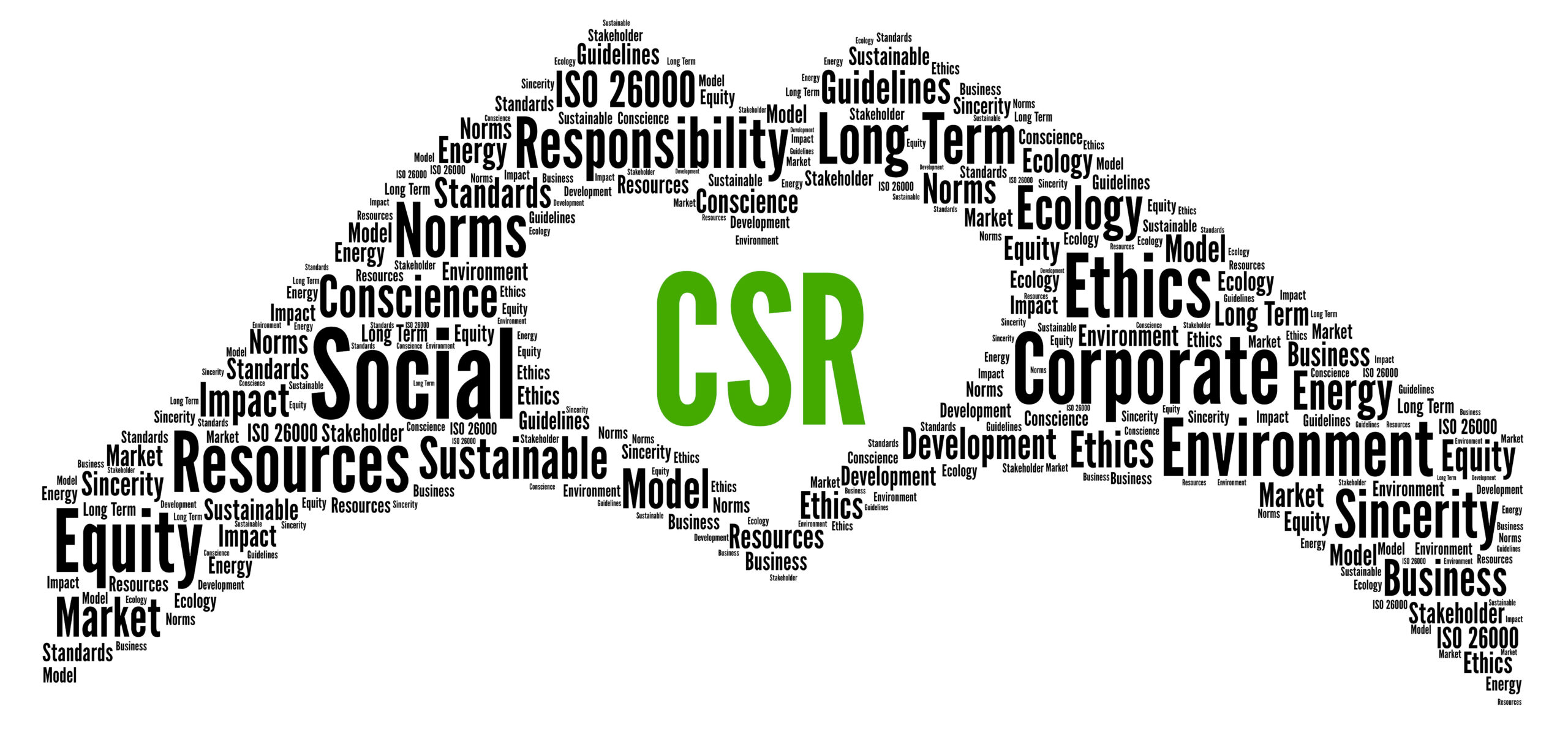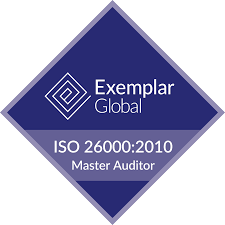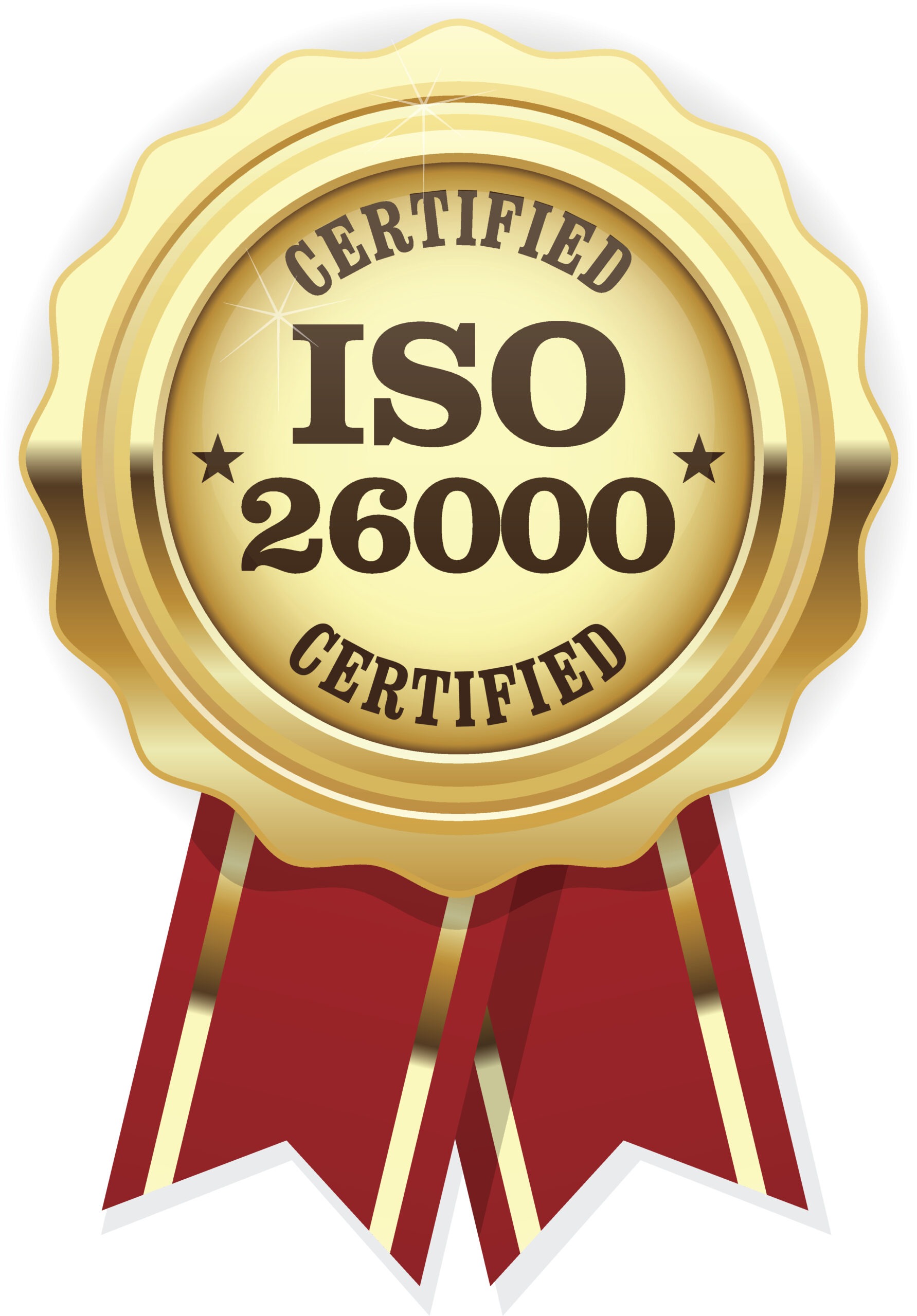ISO 26000 Lead Auditor

ISO 26000 is an international standard developed by the International Organization for Standardization (ISO) that provides guidance on social responsibility.
It does not provide a certification or formal management system like some other ISO standards (e.g., ISO 9001 or ISO 14001); instead, ISO 26000 offers a framework and recommendations for organizations and businesses to understand and implement socially responsible practices.
Key aspects of ISO 26000 include:
- Scope: ISO 26000 addresses various aspects of social responsibility, including human rights, labor practices, environmental responsibility, fair operating practices, consumer issues, and community involvement.
- Seven Core Subjects: The standard outlines seven core subjects that organizations should consider when addressing social responsibility:
- Organizational governance
- Human rights
- Labor practices
- The environment
- Fair operating practices
- Consumer issues
- Community involvement and development
- Principles of Social Responsibility: ISO 26000 defines a set of principles that organizations should follow, including accountability, transparency, ethical behavior, respect for stakeholder interests, and respect for the rule of law.
- Stakeholder Engagement: The standard emphasizes the importance of engaging with and understanding the needs and expectations of relevant stakeholders, including employees, customers, suppliers, communities, and others affected by the organization’s activities.
- Integration with Existing Practices: ISO 26000 is designed to complement and integrate with existing management systems and practices, such as those related to quality, environment, or health and safety.
- Guidance for Implementation: The standard provides guidance on how organizations can apply the principles of social responsibility and integrate them into their strategies, policies, and operations.
- Continuous Improvement: Organizations are encouraged to continually improve their social responsibility performance and adapt to changing societal expectations and needs.
- Communication and Reporting: ISO 26000 encourages organizations to communicate their social responsibility efforts transparently and, if appropriate, report on their performance.


We are ISO 26000 Lead Auditor
Certified Exemplar Global, Certificate Number: SA/LA/ACDK
ISO 26000 is a guideline for social responsibility, and organizations that choose to follow it typically have individuals, often called Social Responsibility Managers or Coordinators, who are responsible for integrating these principles and practices into their operations.
While there is no formal “lead auditor” role associated with ISO 26000, we play a role in promoting ethical and responsible behavior within the organization.


ISO 26000 is a voluntary standard, and organizations can use it to guide their efforts in social responsibility without seeking formal certification.
It is particularly relevant for organizations looking to align their operations with ethical and socially responsible practices, strengthen their reputation, and meet stakeholder expectations.
While ISO 26000 does not provide a certification, organizations can use third-party assessment and verification processes to demonstrate their commitment to social responsibility and compliance with the guidance outlined in ISO 26000. However, the standard itself does not offer a certification process.
